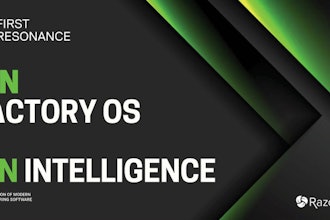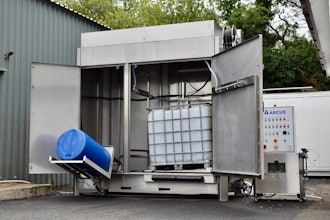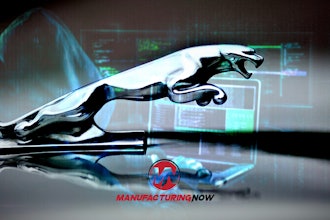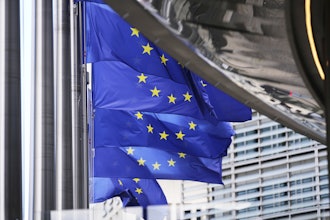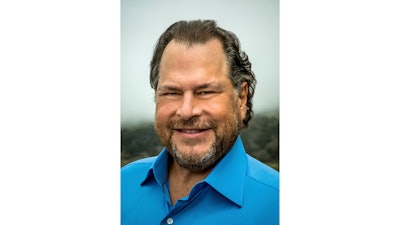
SAN FRANCISCO (AP) — Salesforce founder and CEO Marc Benioff has become something of a vanishing breed during the nearly quarter century he has been running the company that pioneered the concept of selling software as an online subscription. While Benioff remains in charge at Salesforce, other billionaire founder/CEOs such Amazon's Jeff Bezos, Google's Larry Page and Netflix's Reed Hastings have all stepped away from groundbreaking companies born during the 1990s.
Benioff, 58, isn't ready to leave Salesforce yet, even though he has amassed an $8 billion fortune and just went through a challenging stretch that might have caused many CEOs to head for the exit. In January, Benioff decided to lay off 8,000 Salesforce employees after overseeing a pandemic-driven expansion that included a nearly $28 billion acquisition of the popular workplace tool Slack and then grappled with an investor backlash triggered by a nearly 50% drop in the company's stock price last year. The shares have recovered most of their losses so far this year on the strength of a revived revenue growth.
The Associated Press recently sat down with Benioff for an interview that has been lightly edited for clarity.
Q: How does the landscape look to you as the pandemic fades into the rearview mirror?
A: When I look back at 2019, we had really gone through three huge waves of technology: cloud computing, mobile and social. And now we are going into the fourth wave, which is probably the most important one in AI (artificial intelligence), which is not just the most important technology of our lifetime, but probably the most important in any lifetime. It's going to be a new world of technology that's as exciting as all the other worlds put together.
Q: Is this on the scale of the development of nuclear bombs back in World War II?
A: Technologies are never good or bad, it's what we do with them that matters. Nobody wants a Hiroshima moment to understand how dangerous AI is. We want to be able to kind of get our heads around the tremendous consequences of the technology that we are working with. And that's going to require a multi-stakeholder approach — companies, governments, non-governmental organizations and others to put together the guidelines for this technology.
Q: Have you been surprised or alarmed by how quickly things seem to be advancing since the release of the ChatGPT bot late last year?
A: We are moving from the generative ChatGPT phase, which is phase one, into a stage where we are about to see agents that are quite alive and aware and able to take these kinds of massive actions. These are called multimodal agents, that is they can move from text to speech to video. And then we are going to move into something that is maybe more multisensory, where these agents are going to be more aware of us and we are going to be more aware of them.
None of us are really ready for this because none of us have had this experience before. We are on the threshold of a dramatic change in the way we work with computers. We are going to work side by side with them. And, in many cases, they are going to augment or extend what we have been doing. They are going to be taking actions without our knowledge.
Q: Salesforce is one of many tech companies that now allow employees to work remotely at least a few days a week. How has the pandemic changed the nature of work?
A: We are all using technology to find more freedom in our lives. Things are back to normal, but people do go to the office less. And that is not going to change. We are never going back to they way it was.
Q: The tech industry expanded rapidly during the pandemic and then abruptly reversed course with a waves of layoffs that included Salesforce. What happened?
A: Companies were too optimistic, including ours. And we unfortunately had to make adjustments, some that we did not want to make. I think everyone got hypnotized during the pandemic that that was what the future was going to look like. And when the pandemic was over, there was a snapback.
Q: Have you given much thought to how much longer you want to remain Salesforce's CEO?
A: I think about my career every day, but I have never been more excited about the future of the industry and the potential to help all our customers. This technology revolution that is going on in artificial intelligence and the importance of bringing trust to AI is a real call to arms.









